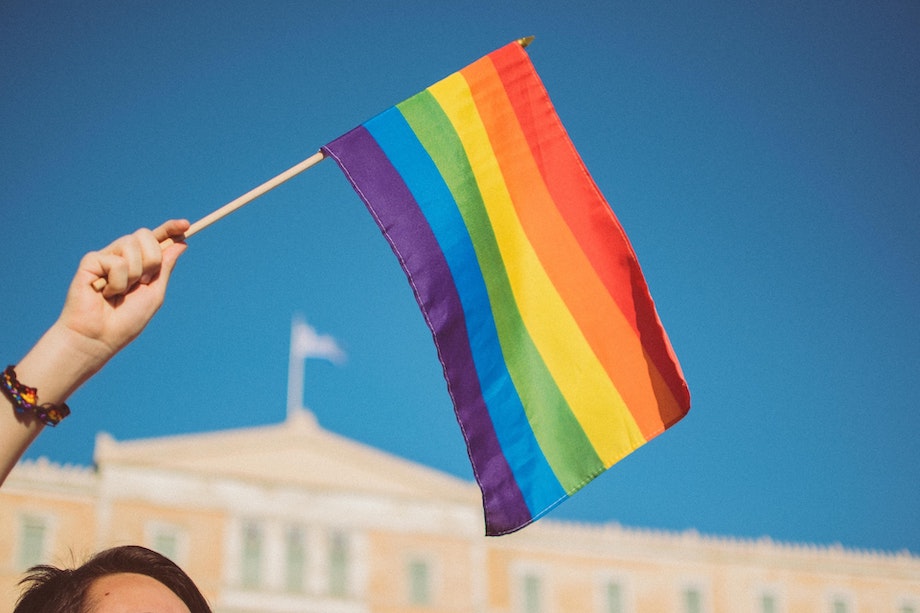LGBTQ+ Servicemembers have long battled discrimination from our nation’s military—from more than a century of codified laws barring them from service to outright violence and discrimination from others within and above their ranks.
In spite of the many dangers and pitfalls, millions of these individuals have continued to sign up to protect our nation. Today, our LGBTQ+ Servicemembers and veterans are increasingly gaining access to the support they deserve, with more services, codified protections, and even systems in place to restore lives that were previously impacted by exclusionary policies and practices.
Despite this progress, we are still recovering—reshaping policies, dismantling barriers, and repairing the lives that were upended by unequal treatment even as they served our country.
The history of discrimination against LGBTQ+ Servicemembers is long, with evidence of discharges for homosexuality dating back to the Revolutionary War. Thirty years ago, the Clinton Administration enacted the infamous Don’t Ask Don’t Tell (DADT) policy, which allowed LGBTQ+ individuals to serve in the Armed Forces, but prohibited them from disclosing their sexuality. This double-edged sword opened the door for military service, but it also opened LGBTQ+ Servicemembers to administrative discharges, discrimination, and violence if they were outed—or even accused—while serving.
Despite DADT’s repeal in 2011, LGBTQ+ Servicemembers continued to face high rates of violence and assault. As a 2020 Military Times article pointed out, “LGBTQ+ Servicemembers are allowed to be out and proud, but a fear of repercussions persists.” Stressors for these Servicemembers further intensified after the Trump Administration’s transgender exclusion policy was enacted in 2018, followed by the administration’s 2020 removal of LGBTQ+ nondiscrimination protections for health care and insurance.
To say that LGBTQ+ Servicemembers often face tremendous difficulties is an understatement. The Veterans Health Administration (VHA) Office of Patient Care Services & Office of Health Equity lists several, including:
- Higher rates of discrimination, stigma, and trauma experiences.
- Higher rates of smoking, alcohol, and substance abuse.
- Higher risk for mental health illnesses, e.g. anxiety and depression.
- Lower overall health.
- Increased vulnerability to unjust discharges as a result of discrimination and related negative health outcomes.
- Post-discharge difficulties transitioning to civilian life and coping with the stigma associated with other-than-honorable discharges.
Together, these factors contribute to a greater rate of suicide for LGBTQ+ Servicemembers. A 2020 study published in the Journal of American Medicine (JAMA) verified and quantified the risk of suicide among “sexual minority” veterans, as they were referred to in the study:
“Sexual minority populations experience stressors associated with increased risk for suicide, including higher rates of depression and adverse social determinants of health that are often associated with suicide risks, such as adverse childhood experiences, adulthood sexual violence, and homelessness.”
In 2017, according to the study, 3.8% of LGBTQ+ veteran deaths were from suicide—more than double the 1.7% rate of the general population. It was the fifth-highest cause of death among all LGBTQ+ veterans and the highest cause of death for those between the ages of 18 and 29.
Another study from the journal Perspectives on Psychological Science finds that trends are even more alarming for transgender individuals. Transgender adults serve in the U.S. military at 2 to 3 times the rate of the general adult population—yet transgender veterans die by suicide at twice the rate of their cisgender veteran peers and approximately 5.85 times the rate of the general population.
To combat these trends, the JAMA report strongly recommends study and prevention. The Department of Veterans Affairs (VA), members of Congress, and numerous nonprofit organizations have also begun to reverse these trends and support our Servicemembers.
Although LGBTQ+ Servicemembers have faced a long, fraught history of discrimination and exclusion, the future is bright thanks to numerous policy changes and programs that have been enacted over the years—including the Biden Administration’s 2021 reversal of the 2018 transgender exclusion policy. In his order, President Biden directed defense leaders to ensure that all directives, orders, regulations, and policies are consistent with the new order. Today, transgender and other LGBTQ+ Servicemembers and veterans have access to a wide net of support services.
On the 10th anniversary of the repeal of Don’t Ask Don’t Tell, the Department of Veterans Affairs issued new guidance that grants benefits to veterans who received other-than-honorable discharges under DADT. Previously, these veterans were ineligible for many VA benefits, including health care, disability compensation, home loans, and burial benefits.
In addition to these benefits, the VHA provides specialized healthcare services through its LGBTQ+ Health Program, which serves veterans, their caregivers, families, and beneficiaries through services that include:
- Gender Affirming Hormone Therapy.
- Substance, tobacco, and alcohol treatment.
- Treatment and prevention of sexually transmitted infections, including pre- and post-exposure prophylaxis for veterans at risk for HIV.
- Intimate partner violence reduction and treatment.
- Military Sexual Trauma screening and treatment.
- Infertility.
- Suicide prevention services, including the Veterans Crisis Line.
- Virtual Mental Health Care.
- Fact sheets on LGBT issues.
Many nonprofit organizations are also dedicated to supporting our Armed Forces, veterans, and LGBTQ+ Servicemembers. The Modern Military Association of America is the nation’s largest nonprofit organization advocating for the LGBTQ+ military and veteran community. SPARTA (Service Members, Partners, Allies, for Respect and Tolerance for All) is an organization for transgender people who currently serve or have served in the military.
Congress continues to pass legislation that supports LGBTQ+ Servicemembers. In November, the House Armed Services and Veterans’ Affairs Committees introduced legislation to create a commission on LGBTQ+ Servicemembers and veterans. If passed, the Commission would hold public hearings, gather public testimony, examine discriminatory policies’ impacts on the physical and mental well-being of Armed Forces members, and recommend appropriate remedies.
When it comes to advancing policies that promote equal treatment for all of our Armed Forces, LGBTQ+ Servicemembers have been locked in a tug of war that saw some rights granted and others taken away—but we continue to make progress even as the road ahead may remain difficult.




